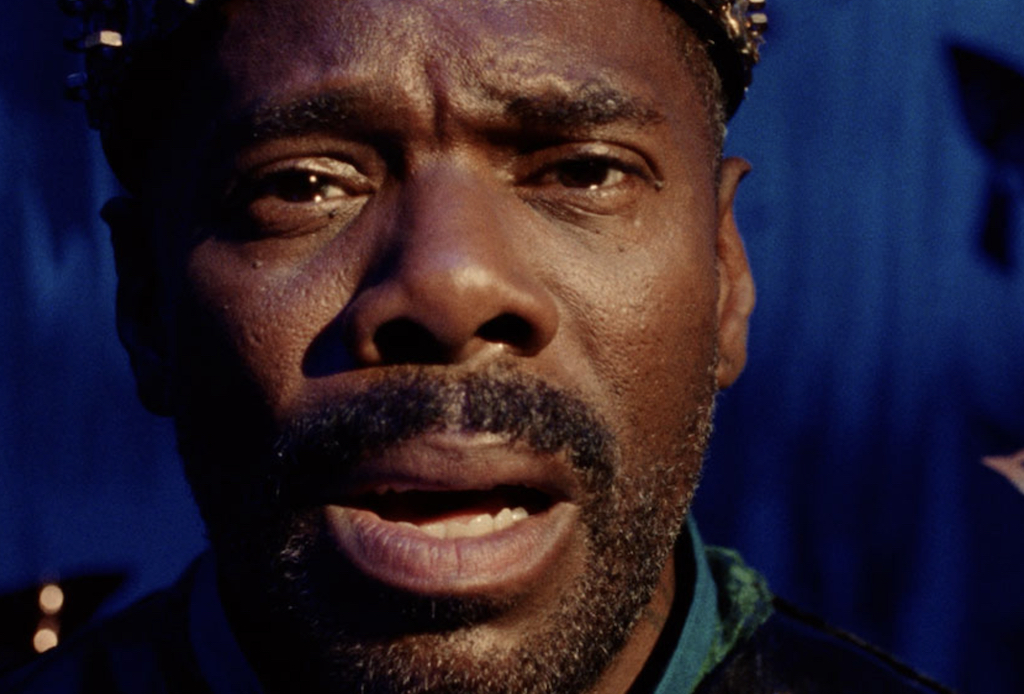
(****)
It’s refreshing when a film poses answers to the most confounding social issues.
Countless feature films and documentaries exam the plight of systems and institutions that treat Black folks unfairly. Too few offer solutions. That’s the reason this drama, which is based-on-fact and real people, is so illuminating. It offers results.
Prison reform is a hot topic, and this production depicts it in a way that makes the rehabilitation of the incarcerated an inspiring journey. An allegory worth retelling and spreading. The setting is Sing Sing Correctional Facility, a maximum-security prison in Ossining, New York.
Rehabilitation Through the Arts (RTA) is a small group of convicts who’ve become actors, and its members put on shows every six months. One of the founders, John “Divine G” Whitfield (Colman Domingo, Rustin), writes many of their plays. He recruits a temperamental prison yard bully, Divine Eye (Clarence Maclin), into the group. Then the troupe, their director (Paul Raci, Sound of Metal) and key players (Sean San Jose, John Divine G. Whitfield) prepare to stage a time travel theater piece.
Writer/director Greg Kwedar, with co-writers Clint Bentley (Jockey) and Brent Buell, weaves reality, a play-within-a-play scenario, rivalries, jealousies, failures and hope into an extremely emotional and uplifting film. You have to love the characters; the ones society deems incorrigible. All the prisoners are interesting, but Divine Eye is intensely compelling because his character arc puts the ultimate dreams and goals of the theater group on display. Healing and redemption. Also, the real Clarence “Divine Eye” Maclin plays himself!
The push and pull, between Divine G and Divine Eye, is so tense and real because Domingo and Maclin convey the rawest emotions. Arguments, accusations, fear, anxiety and finally love and understanding. It’s a process the actors go through with a keen sense of duty to their characters. A mentoring that brings the most unlikely prison actor to his zenith. They and others are given the words and feelings they need to show that growth and redemption is possible. Says one con: “We’re here to become human again. And enjoy the things that are not in our reality.” All the depictions and interpretations of prison life resonate. All.
Kwedar (Jockey) directs the ebbs and flows and ups and downs with a real focus on primal feelings, authentic performances and a rhythm that makes 105 minutes (editor Parker Laramie) of jail time a vibrant experience. It’s a vision to behold (Pat Scola, cinematographer; Ruta Kiskyte, production design; Desira Pesta, costumes; Jacob Harbeck, art direction). In between scenes, the camera focusses on exterior and interior shots that are perfectly lit and composed. Like those in an art film.
By film’s end, passion and optimism rush over you. And knowing that some of the formerly incarcerated men from the real RTA group are in the main cast brings the film’s theme full circle. The real-life director of RTA made an astonishing claim: “67% of inmates will return to prison after being released. The recidivism rate for RTA members is 3%.” That’s because their arts therapy group rebuilds prisoners from the inside out.
Ever heard of an empowering jailhouse movie that posed even a tiny solution for breaking the cycle of mass incarceration? That’s the magic of the stirring film Sing Sing—it has answers.
Trailer: https://www.youtube.com/watch?v=j3dXc6P3zH8
Visit Film Critic Dwight Brown at DwightBrownInk.com.